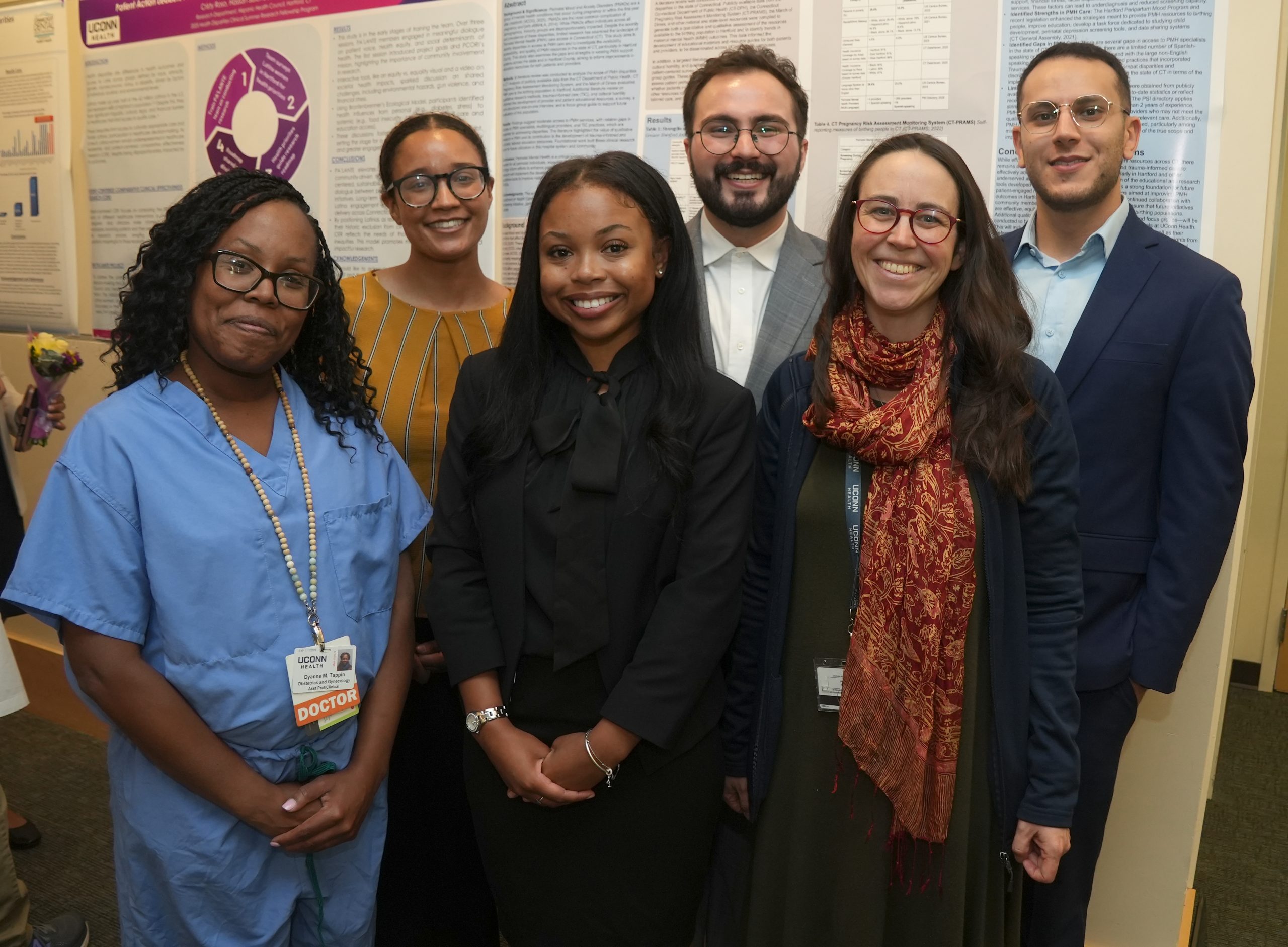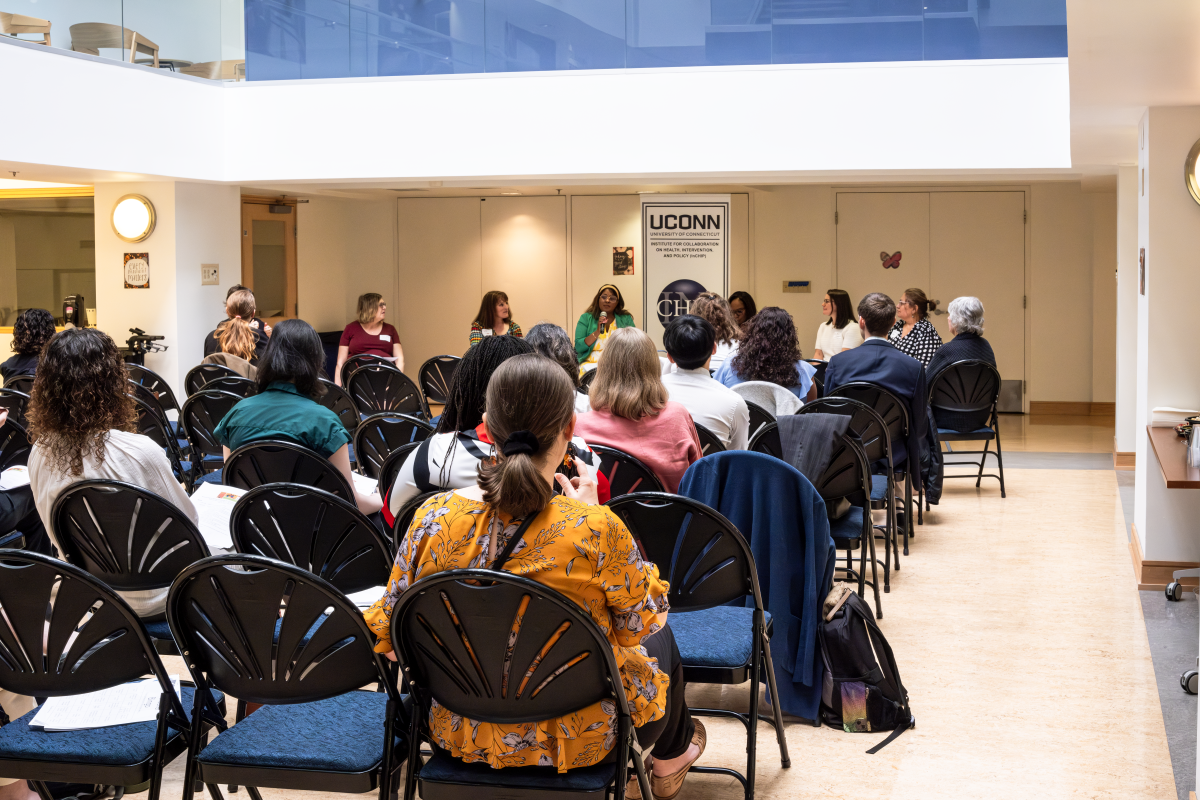A Tradition of Stewardship, A Future of Innovation: Mashantucket Pequot Tribal Nation’s Agricultural Leadership
Laughter fills the air as children explore agriculture in the greenhouse with controlled environment agriculture systems at Meechooôk Farm, part of the Mashantucket Pequot Tribal Nation. For some, it’s their first time tasting lettuce and tomatoes despite their parents’ best efforts—and they’re pleasantly surprised.
Through this program, led by the Mashantucket Pequot Tribal Nation and supported by UConn Extension, youth are discovering the connections between innovation, tradition, and community.
“This is about more than growing food; it’s about feeding our future,” says Tribal Chairman Rodney Butler ‘99 (BUS). “Controlled environment agriculture allows us to take control of our health and sustainability in ways our ancestors never could have imagined, all while staying true to who we are.”
Agricultural and youth education at the Mashantucket Pequot Tribal Nation integrates three key goals: agricultural production, cultural heritage, and nutrition. This program was co-designed by the Nation and UConn Extension with support from USDA’s Federally-Recognized Tribes Extension Program. The eight-year partnership began when Tribal members sought Extension’s expertise to enhance their agricultural practices.
Controlled environment agriculture enables food production in small, non-traditional spaces, including shipping containers and urban centers. These systems embody the spirit of innovation, merging technology and sustainability to tackle critical global challenges like food security and climate resilience. The UConn team, led by Shuresh Ghimire, associate extension educator for vegetable crops, collaborates closely with Jeremy Whipple, farm manager of Meechooôk Farm, and Marissa Turnbull, director of the Mashantucket Pequot Tribal Nation Department of Agriculture.
By incorporating freight farming, the Nation grows crops year-round, regardless of weather conditions. Shipping containers transform into efficient growing spaces equipped with climate control, LED lighting, and automated irrigation. These LED lights provide precise wavelengths to optimize plant growth, enhancing productivity.
Tomatoes, lettuce, herbs, and other crops thrive in the farm’s hydroponic greenhouses, ensuring year-round access to fresh, nutritious food within the community. Beyond meeting local needs, these crops contribute to economic viability through sales to restaurants, schools, and other partners.
With 90% less water usage and crops growing up to four times faster, controlled environment agriculture is remarkably efficient. It reduces reliance on chemical pesticides, ensuring safer, higher-quality produce. By shifting to indoor farming, the Nation strengthens food security, lowers transportation costs, and minimizes waste—improving both human health and environmental sustainability.
“This partnership is a model for how education can drive meaningful change—benefiting communities while preserving cultural heritage,” says Indrajeet Chaubey, dean of the College of Agriculture, Health and Natural Resources (CAHNR). “It goes to the heart of what we do in CAHNR: training the future workforce, equipping youth with leadership and life skills for any career path and using research to create knowledge that directly benefits the communities we serve.”
Together, the Mashantucket Pequot Tribal Nation and UConn Extension are building a vibrant, sustainable agricultural program to enhance food security and Tribal health. The Nation employs youth and adults from their community on the farm, while Extension provides agricultural, business, and nutrition expertise. Additionally, weekly community food boxes support those in need.
“I think one of the special things about UConn is that we’re engaged in every single community in this state,” says Provost Anne D’Alleva. “We hold so much precious, valuable, transformational knowledge embedded in our communities, and UConn serves as the vehicle for ensuring that knowledge has an impact across our state and beyond. The Mashantucket Pequot Tribal Nation’s work with UConn Extension demonstrates the power of learning—blending traditional knowledge with modern science to create sustainable solutions.”
Work at Meechooôk Farm continues to evolve as the Nation and UConn Extension expand the agricultural and community components of the program. Innovation remains a driving force as the Mashantucket Pequot Tribal Nation balances health and sustainability.
“Every decision we make as a Tribal Nation reflects our responsibility to the land, our ancestors, and future generations,” Butler concludes. “Controlled environment agriculture is one way we uphold that responsibility—combining technology with tradition to grow not just food, but opportunity.”
Latest UConn Today
- Incoming UConn Medical Students Get Hands-On Summer Research ExperienceFor the first time the Health Career Opportunities Program of UConn Health offered matriculating UConn medical students summer research opportunities.
- Partnering with Communities to Improve HealthInCHIP’s Community Engagement Research Core’s latest networking event offers insights for successful community research partnerships
- Study Highlights Higher Rates, Risk Factors for Non-Fatal OverdosesA new opioid overdose study has identified several key risk factors associated with non-fatal overdoses drawing from a sample of people who use opioids in New Haven
- Archiving for Justice, Truth, and Memory: Unpacking the Baggage of What Went BeforeReflections on the importance of the newest addition to UConn’s ICTY Digital Archives, the Srebrenica Genocide Archives Collection.
- Multiple Sclerosis Patient Sees Bright FutureFrom unheard to understood
- UConn AUKUS Scholars Explore Undersea Vehicle Technology, International Collaborations in AustraliaFive College of Engineering students studied systems thinking and interdisciplinary teamwork essential in modern undersea vehicle development













